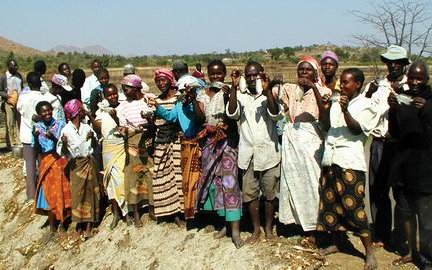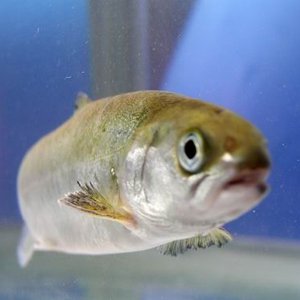Malawi is one of many countries in Africa in which food is a scarce resource, and fish is an important part of the diet. Lake Malawi, which used to be rich in fish, is now suffering from overfishing, and yield is decreasing. As emphasised at the meeting of fishery experts and 25 African leaders in Nigeria recently, the amount of fish per capita is falling, and the WorldFish Center in Malaysia strongly urges Africa to find ways of producing more fish.
New breeding success
Based on knowledge gained from the successful GIFT programme in the Philippines, a corresponding breeding program was set up in Malawi. A genetically improved indigenous species, Oreochromis shiranus, will give farmers greater yield for the same amount of input. Malawian PhD student Alfred Maluwa at the Norwegian University of Life Sciences/AKVAFORSK has worked with this programme for three generations of selective breeding, along with his supervisor Dr. Bjarne Gjerde from AKVAFORSK. Maluwa is finishing his PhD thesis this month, and he intends to present promising test results from the program.
Grows well in different climates
The fish have been tested at three different sites in Malawi with highly different climates. After three generations of testing and selection, there is a great improvement in growth from about 70 grams (parental population) to 85 grams (F3 generation) after a 6-month growing period. For a species such as tilapia, this is rapid progress, with a generation interval of only one year.
Maluwa also found that although the fish grew best in the low humid and hot areas, the fast growing fish in these hot areas also grew fast in the cool highlands. This means that it is not necessary to breed different strains for different sites in Malawi.
The aim of the breeding programme is to provide fish farmers with continuously genetically improved fish. The project is financed by the UNDP through the WorldFish Center, while Alfred Maluwa’s study in Norway is funded by a scholarship from the Quota Programme through the Norwegian Ministry of Education and Research.
Photo: This women’s group runs one of the test farms. They are shown here with some of today’s harvest. (Photo: AKVAFORSK)
For more information about this project, please contact: Alfred Maluwa: alfred.maluwa@akvaforsk.no or Phone: +47 64 94 95 40












